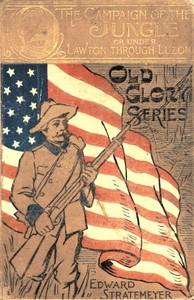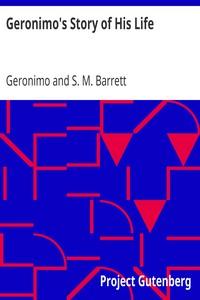Read this ebook for free! No credit card needed, absolutely nothing to pay.
Words: 7118 in 2 pages
This is an ebook sharing website. You can read the uploaded ebooks for free here. No credit cards needed, nothing to pay. If you want to own a digital copy of the ebook, or want to read offline with your favorite ebook-reader, then you can choose to buy and download the ebook.


: Charles Sumner Centenary: Historical Address The American Negro Academy. Occasional Papers No. 14 by Grimk Archibald Henry - Sumner Charles 1811-1874
fierce rivalries and jealousies within them of party leaders at the North. All the conditions seemed to favor southern aggression--the commission of some monstrous crime against liberty. Webster had gone to his long account, dishonored and broken-hearted. The last of the three supreme voices of the early senatorial splendor of the republic was now hushed in the grave. As those master lights, Calhoun, Webster and Clay, vanished one after another into the void, darkness and uproar increased apace.
About this time the most striking and sinister figure in American Party history loomed into greatness. Stephen A. Douglas was a curious and grim example of the survival of viking instincts in the modern office seeker. On the sea of politics he was a veritable water-dog, daring, unscrupulous, lawless, transcendently able, and transcendently heartless. The sight of the presidency moved him in much the same way as did the sight of the effete and wealthy lands of Latin Europe moved his roving, robber prototypes eleven centuries before. It stirred every drop of his sea-wolf's blood to get possession of it.
His "Squatter Sovereignty Dogma" was in truth a pirate boat which carried consternation to many an anxious community in the free states.
It was with such an ally that the slave power undertook the task of repealing the Missouri Compromise. The organization of the northern section of the Louisiana Purchase into the territories of Kansas and Nebraska was made the occasion for abolishing the old slave line of 1820. That line had devoted all of that land to freedom. Calhoun, bold as he was, had never ventured to counsel the abrogation of that solemn covenant between the sections. The South, to his way of thinking, had got the worst of the bargain, had in fact been overreached, but a bargain was a bargain, and therefore he concluded that the slave states should stand by their plighted faith until released by the free. That which the great Nullifier hesitated to counsel, his disciples and successors dared to do. The execution of the plot was adroitly committed to the hands of Douglas, under whose leadership the movement for repeal would appear to have been started by the section which was to be injured by it. Thus the South would be rescued from the moral and political consequences of an act of bad faith in dealing with her sister section.
The Repeal fought its way through Congress during four stormy months of the winter and spring of 1854. Blows fell upon it and its authors fast and furious from Seward, Chase, Wade, Fessenden, Giddings and Gerrit Smith. But Sumner was the colossus of the hour, the flaming sword of his section. It was he who swung its ponderous broadsword and smote plot and plotters with the terrible strength of the northern giant. Such a speech, as was his "Landmarks of Freedom," only great national crises breed. It was a volcanic upheaval of the moral throes of the times, a lavatide of argument, appeal, history and eloquence. The august rights and wrath of the northern people flashed and thundered along its rolling periods.
"Accomplish thou my manhood and thyself," is the cry of humanity ringing forever in the soul of the reformer. He must needs bestir himself in obedience to the high behest. The performance of this task is the special mission of great men. It was without doubt Sumner's, for he stood for the manhood of the North, of the slave, of the Republic. For this he toiled strenuously all his life long. It shines in every paragraph of that memorable speech, and of the shorter one in defence of the New England clergy made at midnight on that black Thursday of May, which closed the bitter struggle and consummated the demolition of the old slave wall.
From that time Sumner's position became one of constantly increasing peril. Insulted, denounced, menaced by mob violence, his life was every day in jeopardy. But he did not flinch nor falter. Freedom was his master, humanity his guide. He climbed the hazardous steps to duty, heedless of the dangers in his way.
His collisions with the slave leaders and their northern allies grew thenceforth more frequent and ever fiercer. Every motion of his to gain the floor, he found anticipated and opposed by a tyrannous combination and majority, bent on depriving him of his rights as a senator. Wherever he turned he faced growing intolerance and malignity. It was only by exercising the utmost vigilance and firmness that he was able to snatch for himself and cause a hearing. Under these circumstances all the powers of the man became braced, eager, alert, determined. It was many against one, but that one was a host in himself, aroused as he then was, not only by the grandeur of his cause, but also by a keen sense of personal indignity and persecution. Whoever else did, he would not submit to senatorial insult and bondage. His rising temper began to thrust like a rapier. Scorn he matched with scorn, and pride he pitted against pride. As a regiment bristles with bayonets, so bristled his speech with facts, which thrust through and through with the merciless truth of history the arrogance and pretentions of the South. His sarcasm was terrific. His invective had the ferocity of a panther. He upon whom it sprang had his quivering flesh torn away. It was not in human nature to suffer such lacerations of the feelings and forgive and forget the author of them. The slave leaders did not forgive Sumner, nor forget their scars.
Meanwhile the plot of the national tragedy fast thickened, for as the Government at Washington had adopted the "Squatter Sovereignty" scheme of Douglas in settling the territorial question, the two sections precipitated their forces at once upon the debatable land. It was then for the first time that the two antagonistic social systems of the union came into physical collision. Showers of bullets and blood dashed from the darkening sky. Civil War had actually begun. The history of Kansas during this period is a history of fraud, violence and anarchy. Popular sovereignty, private rights and public order were all outraged by the Border Ruffians of Missouri and the slave power.
At this juncture Sumner delivered in the senate a philipic, the like of which had not before been heard in that chamber. His "Crime against Kansas" was another one of his speeches crisis born. It was an outbreak of the explosive forces of the long gathering tempest, its sharp and terrible lightning flash and stroke, the sulphurous vent of the hot surcharged heart of the North. More than one slave champion encountered during its delivery his attention, and must have recoiled from the panther-like glare and spring of his invective and rejoinder. Senator Arthur P. Butler of South Carolina was, on the whole, the most fiercely assaulted of the senatorial group. His punishment was indeed merciless. Impartial history must, however, under all the circumstances of the case, I think, adjudge it just. In that memorable struggle the Massachusetts chieftain used upon his foes not only his tomakawk, but also his scalping knife. No quarter he had received from the slave power, and none now he gave to it or its representatives.
Such a terrible arraignment of the slave power in general, and of Senator Butler in particular demanded an answer. To it, that power had but one reply, violence, the reply which wrong ever makes to right. And this Preston S. Brooks made two days after its delivery. Mr. Sumner pursuant to an early adjournment of the Senate on an announcement of the death of a member of the lower house, was busy at his desk preparing his afternoon mail, when Brooks, stepping in front of him and with hardly a word of warning, struck him on the head a succession of quick murderous blows with a stout walking-stick. Dazed and stunned, but impelled by the instinct of self-defense, Mr. Sumner tried to rise to grapple with his assailant, but the seat under which his long legs were thrust held him prisoner. Although fastened to the floor with iron clamps, it was finally wrenched up by the agonized struggles of Sumner. Thus released, his body bent forward and arms thrown up to protect his bleeding head, he staggered toward Brooks who continued the shower of blows until his victim fell fainting to the floor. Not then did the southern brute stay his hand, but struck again and again the prostrate and now insensible form of Mr. Sumner with a fragment of the stick.
In the midst of this frightful scene where were the overturned desk, pieces of the broken stick, scattered writing materials, and the blood-stained carpet, lay that noble figure unconscious alike of pain and of his enemies, and of the awful horror of it all. There he lay in the senate chamber of the Republic with blood on his head and face and clothing, with blood, now martyr's blood, running from many wounds and sinking into the floor. Oh! the pity of it, but the sacrificial grandeur of it also! He was presently succored by Henry Wilson and other faithful friends, and borne to a sofa in the lobby of the Senate where doctors dressed his wounds, and thence he was carried to his lodgings. There suffering, bewildered, almost speechless, he spent the first night of the tragedy and of his long years of martyrdom.
Free books android app tbrJar TBR JAR Read Free books online gutenberg
More posts by @FreeBooks


: Journal de mathématics pures et appliquées Tome deuxième année 1837 Ou recueil mensuel de mémoires sur les diverses parties des mathématiques by Various Liouville Joseph Editor - Mathematics Periodicals Mathematics; FR Sciences et Techniques







